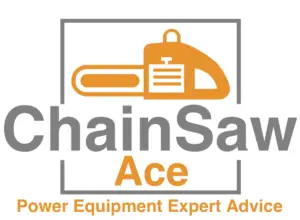When should I replace my chainsaw sprocket?
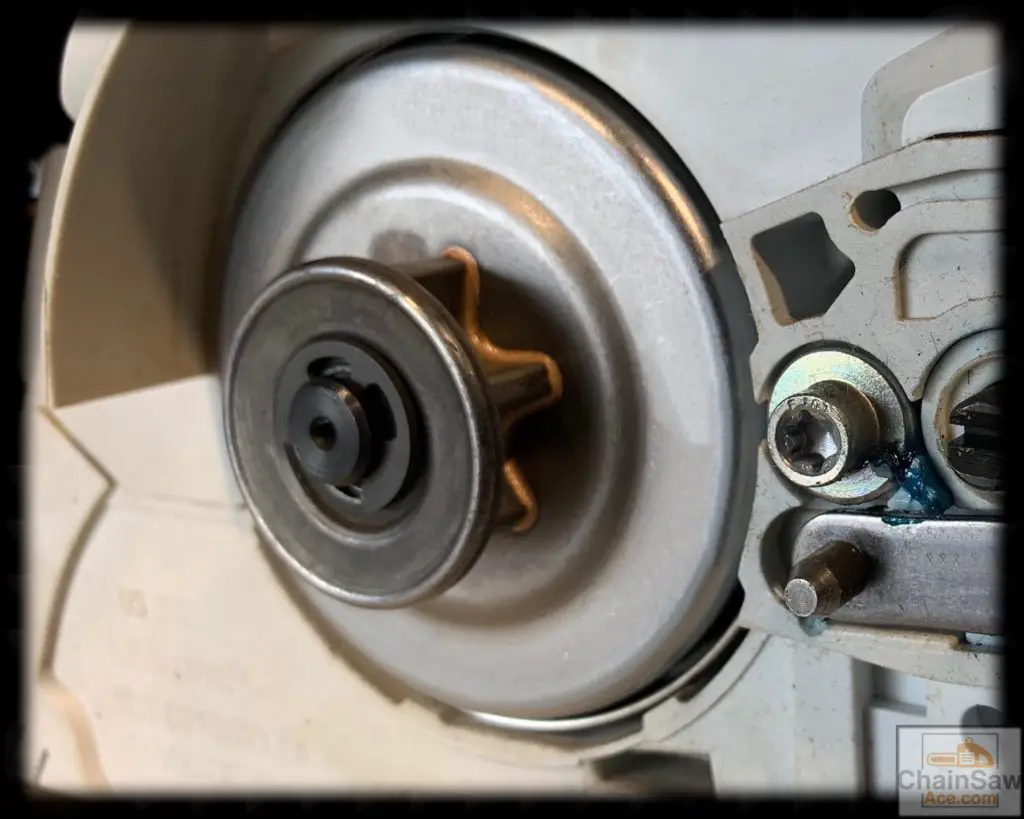
Chainsaws are fantastic pieces of equipment that can output extremely high RPMs and power from a small package. All this power must be transferred to the chainsaw’s chain in order to cut through wood. The mechanism that handles the transfer of power is the chainsaws sprocket. This transfer of power is extremely demanding and will eventually result in the sprocket needing to be replaced. This post will cover how to tell if your chainsaw’s sprocket needs to be replaced.
2 Types of Chainsaw Sprockets
Spur Sprockets are typically what comes installed on new chainsaws from the factory. A spur sprocket is a single piece of metal that has sprocket teeth made directly onto the clutch bell housing of the sprocket.
The most common symptom of a worn sprocket can be felt when you rotate the chain manually by hand. This is known as the CHAIN ROTATION TEST. If you have your chain tensioned properly and the chain rotates smoothly one moment and then becomes difficult or loose a moment later, chances are the sprocket has worn teeth. To check this, loosen the bar nuts holding the side plate cover over the sprocket/clutch. Remove the cover, bar, and chain. The sprocket will now be exposed and can be examined. Look closely at the teeth of the sprocket for signs of a groove or notches. The teeth are supposed to be smooth and consistent. If you noticed that there is a groove worn in the teeth and the chain will not rotate consistently smooth, it’s time to replace the sprocket.
Spur sprockets typically cost around $22 to $30. Please keep in mind that all sprockets will exhibit wear or grooves after use but do not need to be replaced until the chain will not rotate smoothly.
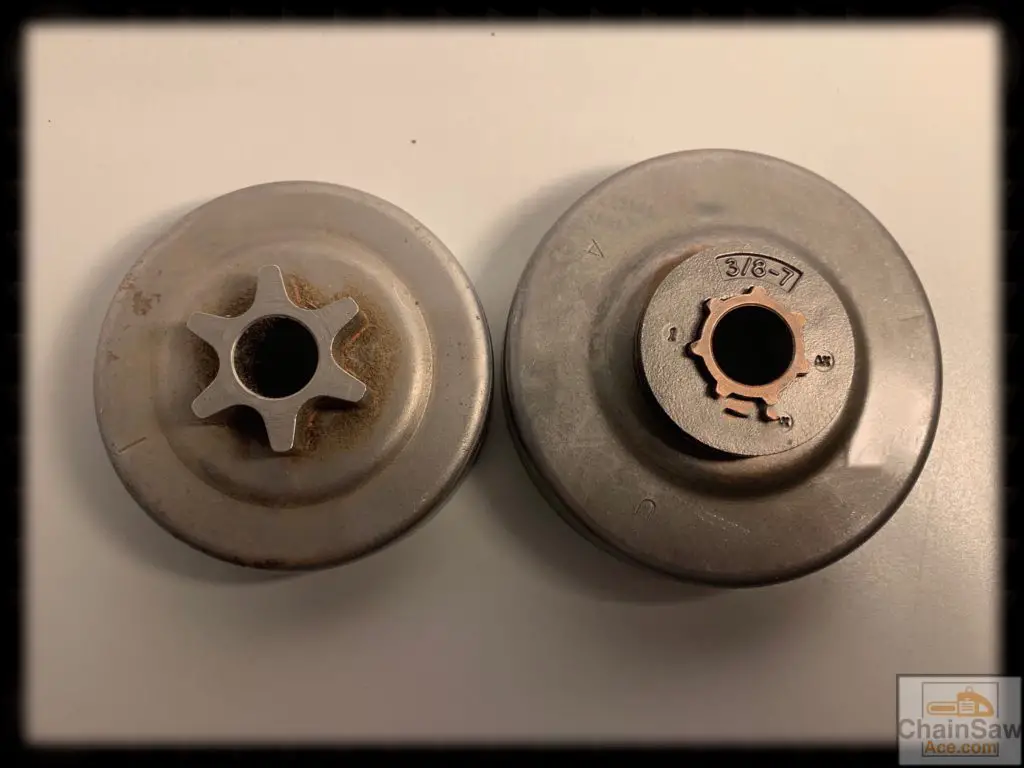
Spur Sprocket
Spur Sprockets are typically what comes installed on new chainsaws from the factory. A spur sprocket is a single piece of metal that has sprocket teeth made directly onto the clutch bell housing of the sprocket.
The most common symptom of a worn sprocket can be felt when you rotate the chain manually by hand. This is known as the CHAIN ROTATION TEST. If you have your chain tensioned properly and the chain rotates smoothly one moment and then becomes difficult or loose a moment later, chances are the sprocket has worn teeth. To check this, loosen the bar nuts holding the side plate cover over the sprocket/clutch. Remove the cover, bar, and chain. The sprocket will now be exposed and can be examined. Look closely at the teeth of the sprocket for signs of a groove or notches. The teeth are supposed to be smooth and consistent. If you noticed that there is a groove worn in the teeth and the chain will not rotate consistently smooth, it’s time to replace the sprocket.
Spur sprockets typically cost around $22 to $30. Please keep in mind that all sprockets will exhibit wear or grooves after use but do not need to be replaced until the chain will not rotate smoothly.
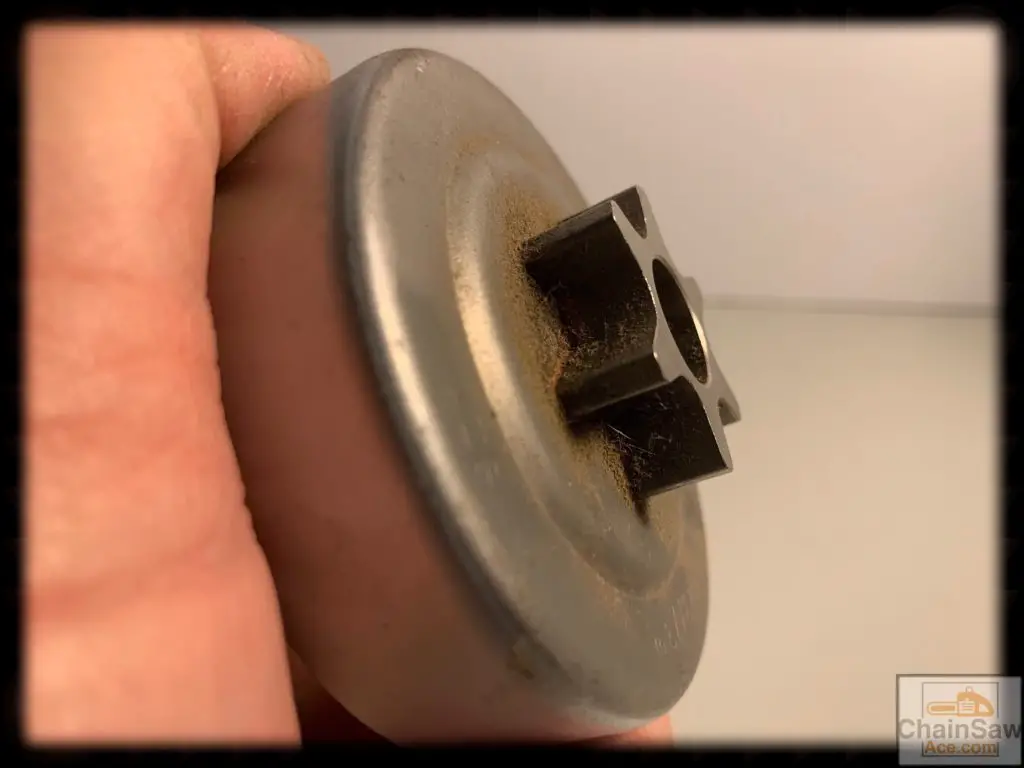
Rim Sprocket System
Rim Sprocket Systems are typically used by professionals and chainsaw enthusiasts who cut large amounts of wood. Rim sprockets are two separate pieces of metal consisting of a rim and a bell housing. These types of sprockets wear like spur sprockets but are much more cost-effective when replacing. When the rim is grooved out and needs to be replaced that’s all you need to buy. There is no need to buy another clutch bell housing. Simply buy a new rim and install it on the old clutch bell housing and you’re ready to go. Replacement rims typically cost around $7 while a whole Rim Sprocket System costs around $30.
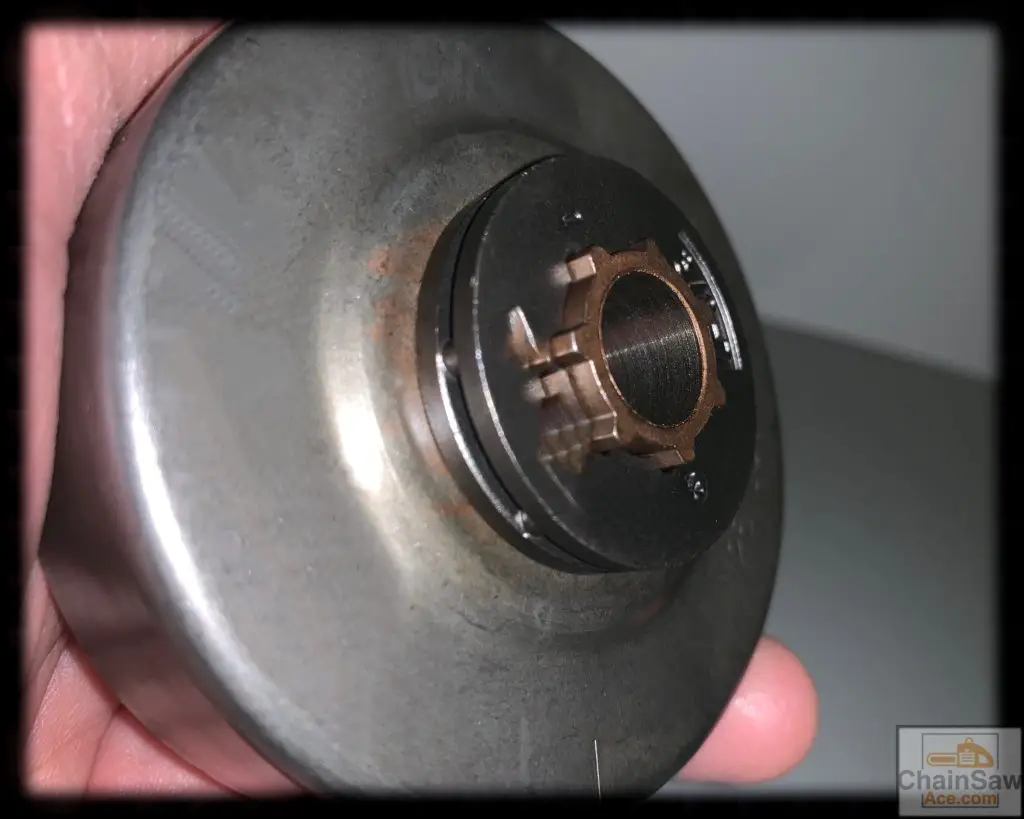
Properly maintaining your chainsaw will save you a ton of time and money down the line. Make your future self-happy and take care of your equipment today.
Have a great day and be safe out there!
